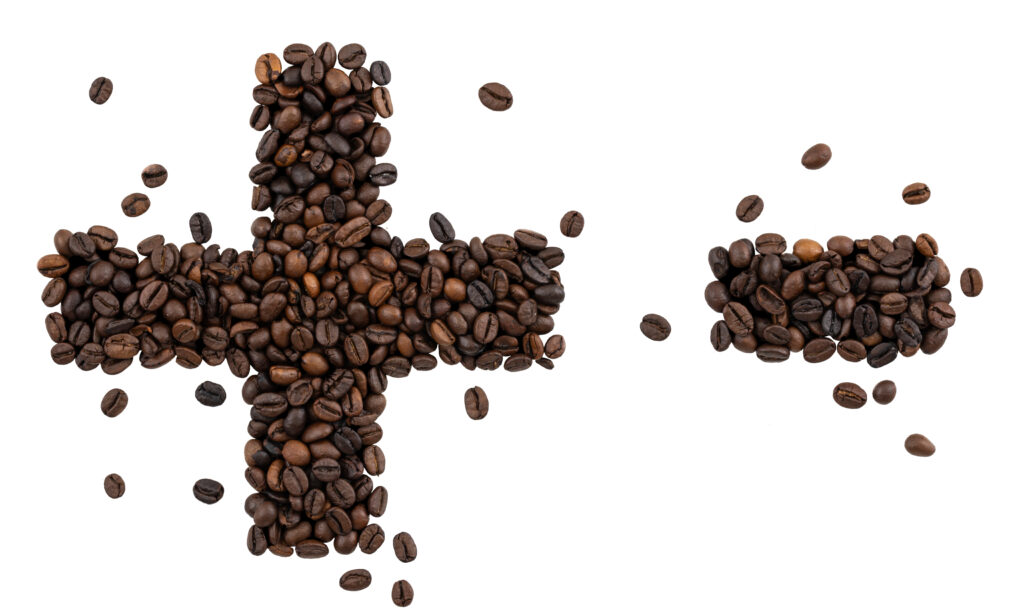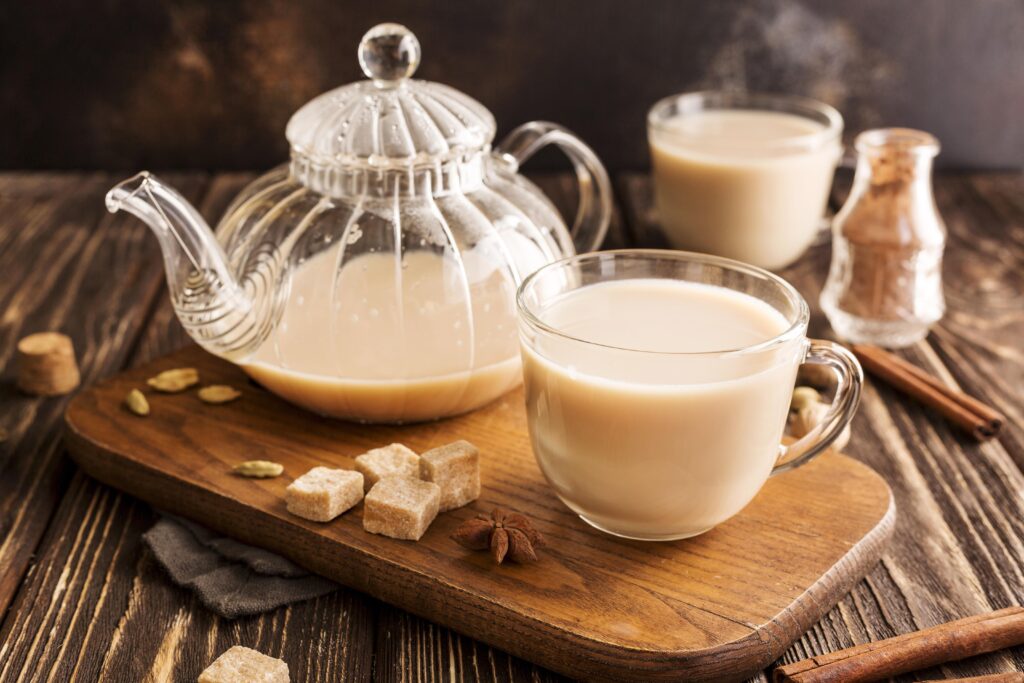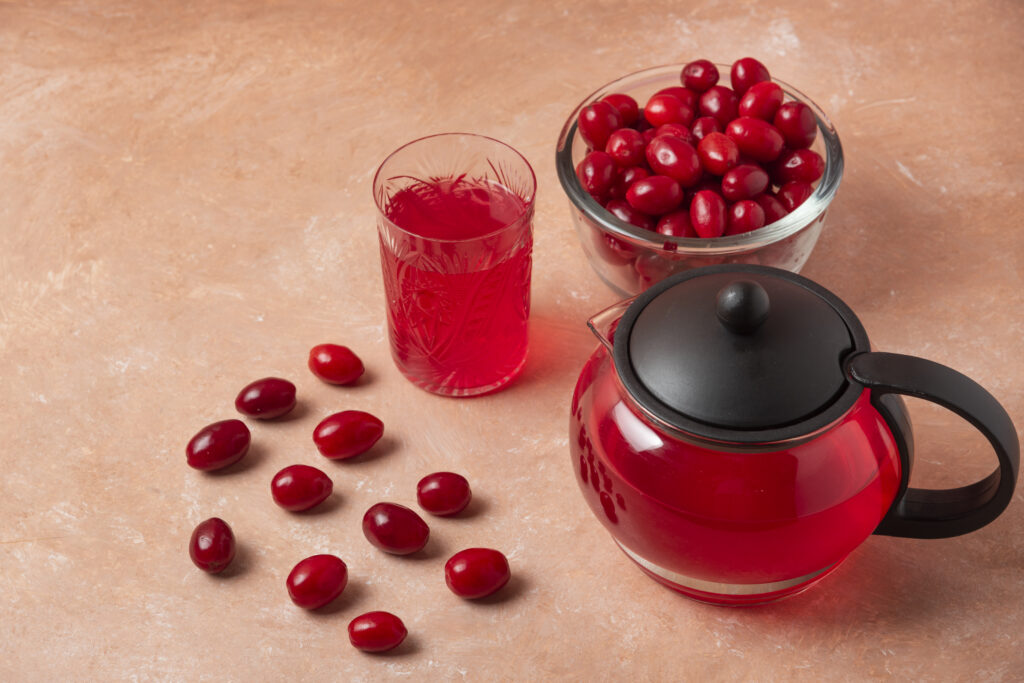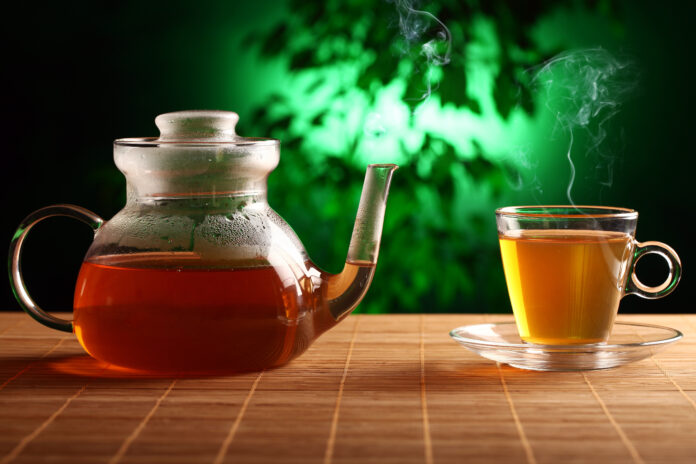Many of you are in love with tea. Therefore, you are eager to know about the health benefits of tea. Experts have explored much more about the health benefits of tea and they’re still looking for better results as time goes on. Nowadays caffeine-free teas are becoming popular and people want to know the reality about their health benefits but there isn’t enough evidence that can resolve the matter. However, some experts of the body and brain health institute of USA, claim that caffeine-free tea is something to avoid but one group of mental health care providers explain the truth behind the claims that this theory is still undiscovered completely.
Here we need to ask the question whether decaffeinated tea is good for you? Because an unexplained answer is not doing justice to the effects of caffeine-free tea on your health. Let’s dive into the facts and figures!
What is Caffeine-Free Tea?
We will start with simple clarification. When most of the caffeine is removed from caffeinated leaves they become caffeine-free tea leaves. However, according to law, the caffeine-free tea must have at least 3.5% of original caffeine. Due to this law pure caffeine-free tea is not easily available. Many companies are trying to prepare decaffeinated tea from green teas and black tea, as they are getting popularity day by day.
How is Decaffeinated Tea Prepared?
Decaffeinating tea is as easy as making tea. In this modern era, removing toxic materials from your food is easy but using toxic chemicals for doing this is banned. Popular methods, generally used for preparing caffeine-free tea include:
Ethyl Acetate: It is the most effective way to decaffeinate the tea leaves. Tea leaves are soaked in this compound. As a result the caffeine content is removed from the leaves. Ethyl acetate is a naturally occurring chemical found in some fruits and tea leaves. This process decays the flavor of tea and is not linked with any health risk. Expert tea drinkers say that through this method chemical flavor is added in the tea that makes it unhealthy and tasteless.
Water Processing: In the method generally tea leaves or coffee beans are boiled in water at high temperature for 20 to 30 minutes to remove caffeine from these leaves. However, along with caffeine, their flavor and beneficial ingredients for health have also been removed. Filtering the extract from carbon paper catches all, caffeine from it. While water recombines with tea leaves or coffee beans. Although it’s a safe method, still tea drinkers dislike it due to the change in flavor.
Carbon Dioxide: This is the safest method to decaffeinate the tea. It is also good in preserving the flavor of the tea. In this method, pressurized carbon dioxide in liquid form is used to attract caffeine molecules from tea leaves but the larger molecules remain in the tea leaves that are responsible for unchanged flavor.
Methylene Chloride: When tea leaves are soaked in methylene chloride, its molecules bond with caffeine molecules and drift them out from tea leaves. You can strain out tea leaves with most of the caffeine left behind. Health organizations are against the use of methylene chloride as it is considered unfit for health. The safety of this method is not assured. Therefore, healthcare providers have banned this method.
Advantages of Decaffeinated Tea
Too much caffeine disturbs your sleep schedule and it is hard for you to have deep sleep while drinking caffeinated tea. However decaffeinated tea is best for improving your sleep quality. Researchers are working to evaluate more health benefits of decaffeinated tea.
Disadvantages of Caffeine-Free Tea
Decaffeinated tea also has several side effects. Most of the drawbacks of caffeine-free tea are harmless but are undesired. Let’s have a look!
Caffeine Avoiding caffeine is better for your overall health but decaffeinated tea also causes health issues for you, including hyper-sensitivity and irritability.
Avoiding caffeine is better for your overall health but decaffeinated tea also causes health issues for you, including hyper-sensitivity and irritability.
Flavor
Procedure of decaffeinating the tea not only removes the caffeine from tea leaves but it also impacts its flavor. Decaffeinated tea is generally less flavorful or tasteless. Most of the methods of preparing decaffeinated tea remove flavor or essence of tea that lead to removal of its precious aroma and taste. Along with caffeine tea also contains compounds responsible for special aroma, color and flavor. These qualities have also gone out due to the decaffeination processes. Only one method, carbon dioxide method retains the flavor of tea but this is not a widely used method.
Antioxidants Presence
Tea contains a high concentration of beneficial compounds such as polyphenols or flavonoids. These antioxidants are associated with several good advantages for health that help keep you active and alert. Most people praise this quality of tea. These antioxidants are also useful in limiting the risks of several diseases like cancer and cardiovascular disease. Free radicals found in tea are best to slow down the aging process.
Decaffeinated tea has lost maximum health improving ingredients during decaffeinating procedure including polyphenols. Caffeine tea with a water method can retain maximum amounts of healthy chemicals.
How to Find caffeine-Free Tea?
If you like to enjoy tea before bed, sleep problems will irritate you to some extent. Because caffeine present in tea interrupts your sleep and makes it difficult for you to fall asleep easily. In addition, caffeine sensitivity is a great hindrance to enjoying a cup of tea before bed.
Fortunately there are a number of teas that lack caffeine. Such teas don’t contain caffeine molecules that make them caffeine-free teas. However, the thing you need the most is the best way to find a caffeine-free tea that is better for you and your health. In this article we are listing some ways to understand the type of tea to introduce you with some of the best flavors of the tea.
If you are looking for caffeine-free tea, check out the following details about some herbal, true and decaffeinated teas that don’t contain any caffeine at all.
Let’s start with understanding the basics of different types of tea, including true tea and herbal tea.
True Teas
Collection of natural teas such as green tea, pu-erh tea, black tea and white tea is known as true teas. These teas contain caffeine in very small amounts. Studies explain that every type of natural herbal tea whether it is a Mandarin green tea, African white teas or Assam black teas, all contain different forms of caffeine. Different types of teas are extracted on the basis of different production processes. Some types of true teas extracted from Camellia sinensis have higher amounts of caffeine. While white tea and green tea contain lower amounts of caffeine. Whereas black tea has the highest concentration of caffeine.
Herbal Teas
Herbal teas are popular caffeine-free teas because they are made from natural resources such as spices, plants and roots of plants. These teas don’t contain caffeine because they are extracted from natural resources. The herbal teas are suitable for drinking before bed because they have no caffeine. If you ate a caffeine sensitive person such teas are best for you. Some types of herbal teas also contain caffeine including guarana, yerba mate and guayusa.
Decaffeinated Teas
This is the third category of tea in which all teas are included that are naturally caffeinated but can be decaffeinated through some chemical procedures. Decaf black tea and decaf green tea are examples. Caffeinated teas are converted into caffeine-free teas but traces of caffeine still remain in them. Artificially made caffeine-free teas have lost their natural beneficial ingredients due to harsh chemical processes. These chemical processes remove flavonoids and polyphenols from teas that alter their natural aroma, flavor and health benefits.
The Best Caffeine-Free Teas
Chai Tea Chai is the common name of tea used in the Sub-Continent, including Indian territories. People in these areas named it as spiced chai or masala chai. This is the most popular beverage in these areas. They use different spices to give an authentic flavor to their chai, including cloves, cinnamon, cardamom, black pepper or ginger. These all are spices that don’t contain caffeine and are anti-inflammatory in nature. Indian black tea is a mixture of these spices and black tea leaves. Leaving out the tree leaves can make your chai caffeine-free. These teas provide you a spicy flavor without the jolt of energy.
Chai is the common name of tea used in the Sub-Continent, including Indian territories. People in these areas named it as spiced chai or masala chai. This is the most popular beverage in these areas. They use different spices to give an authentic flavor to their chai, including cloves, cinnamon, cardamom, black pepper or ginger. These all are spices that don’t contain caffeine and are anti-inflammatory in nature. Indian black tea is a mixture of these spices and black tea leaves. Leaving out the tree leaves can make your chai caffeine-free. These teas provide you a spicy flavor without the jolt of energy.
Ginger Tea
Rhizome of the ginger plant is used to prepare ginger tea. This is also a spice so the tea made with it also contains a spicy flavor with warming features resembling black pepper. This tea is without caffeine and best for caffeine sensitive people. Many health benefits are associated with ginger, including reduction in inflammation and treatment of flu and nausea. If you feel the ginger taste a bit intense, you can add lemon drops or slices of lemon in the ginger tea. This will lessen the pungent flavor of ginger and help balance out the spicy flavor.
Super Fruit Tea
Super fruit tea is a combination of at least six amazing ingredients. This is a caffeine-free tea that is a healthy blend of cranberries, blackcurrants, elderberries, blueberries and currants. This is a tangy beverage best for your decaffeinated tea cravings. Its refreshing aroma and flavor make you energetic and active without any caffeine essence. Its refreshing, natural ingredients make it an outclass fruity tea that is packed with healthy ingredients such as minerals, vitamins and antioxidants. So try this tea, when you are in need of a refreshing cup of caffeine-free tea.
Cinnamon and Apple Tea
An amazing blend of sweetness of apples with a balanced spiced notes of cinnamon makes a most remarkable tea that is caffeine-free. It is a combo that reminds you of the childhood flavor of pancakes and muffins. Its taste is just refreshing. So whenever you want to treat yourself with a sweet tooth fix with health benefits, try this tea which is enriched in vitamin C, calcium and antioxidants.
Mint and Liquorice Tea
Here is a most refreshing and energy boosting tea for you, named as mint and liquorice tea. It is not only sweet in taste but also caffeine-free tea. Its major ingredient liquorice is the best tool to eliminate the need of added sugar and mint is an amazing factor to add calming and cooling effects in it. You can remember the flavor of your favorite mint candy while drinking this tea. You can enjoy a complex balance of mint and sweetness in this caffeine-free tea.
In addition, every sip of tea creates a satisfied and refreshed sensation with several health benefits.
Rosehip Tea Fruit of the rose plant is used to make rosehip tea. Bloomed rose petals have dark orange or red color balls around them. These are the fruits of the rose plant. These little fruits are used in making a natural caffeine-free tea enriched in vitamin C. this is the best choice for the treatment of flu and cold. It is brewed into a magenta hue that gives it a tart and tangy flavor. Its sweet flavor and aroma takes you in the world of plums and hibiscus tea.
Fruit of the rose plant is used to make rosehip tea. Bloomed rose petals have dark orange or red color balls around them. These are the fruits of the rose plant. These little fruits are used in making a natural caffeine-free tea enriched in vitamin C. this is the best choice for the treatment of flu and cold. It is brewed into a magenta hue that gives it a tart and tangy flavor. Its sweet flavor and aroma takes you in the world of plums and hibiscus tea.
Chamomile Tea
It is the most popular tea around the world. It is famous for its caffeine-free, calming nature that makes it a perfect bedtime tea. This tea is the best remedy for fatigue and stress. Its relaxing ingredients impact your brain cells and induce a stress relieving effect on you. It’s a perfect choice to unwind after a long day at the workplace.
Its flavor reminds you of the crispy taste of green apples. It is brewed in a bright golden hue that makes it reflect the images of sunny, dewey mornings with an amazing blend of sweet and floral flavors.
Conclusion
Let’s wrap up the discussion! The best caffeine-free teas are available in your desired flavors but you need to know their effects on your health. Top caffeine-free teas mentioned in this article can be the best choice for you as these teas are not only caffeine-free but also have a myriad of aromas, flavors and health benefits.
If you are looking for tea that does’t contain caffeine but is rich with a soothing effect. You can try one of these that exactly suits your needs.
However, it is recommended that tea bags are not good for your health. Whatever the flavors you choose, it should be loose leaf tea. Because loose leaf teas are free from chemicals and infuse better flavor than tea bags. So don’t waste your time and swap a cup of caffeinated tea with the caffeine-free tea that may lead you towards a healthier way.







